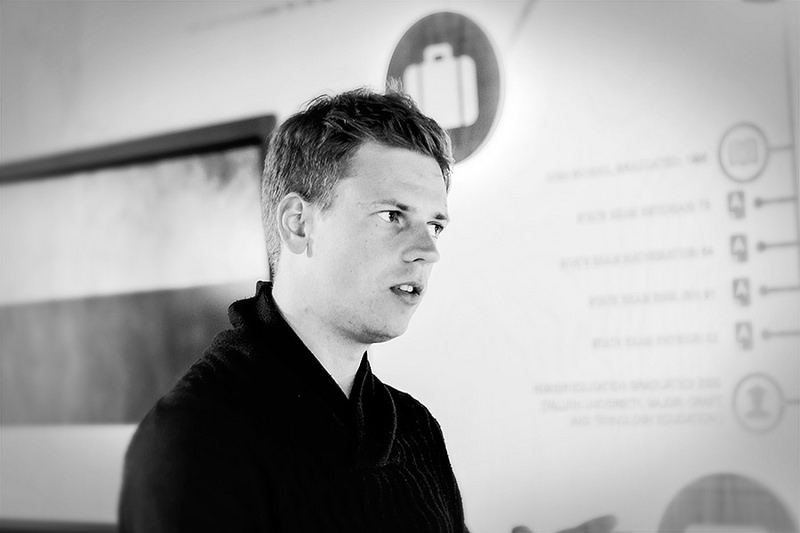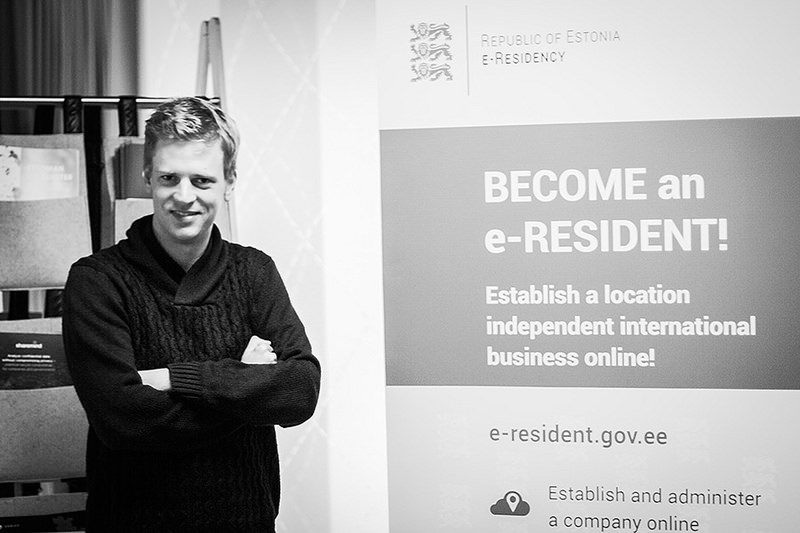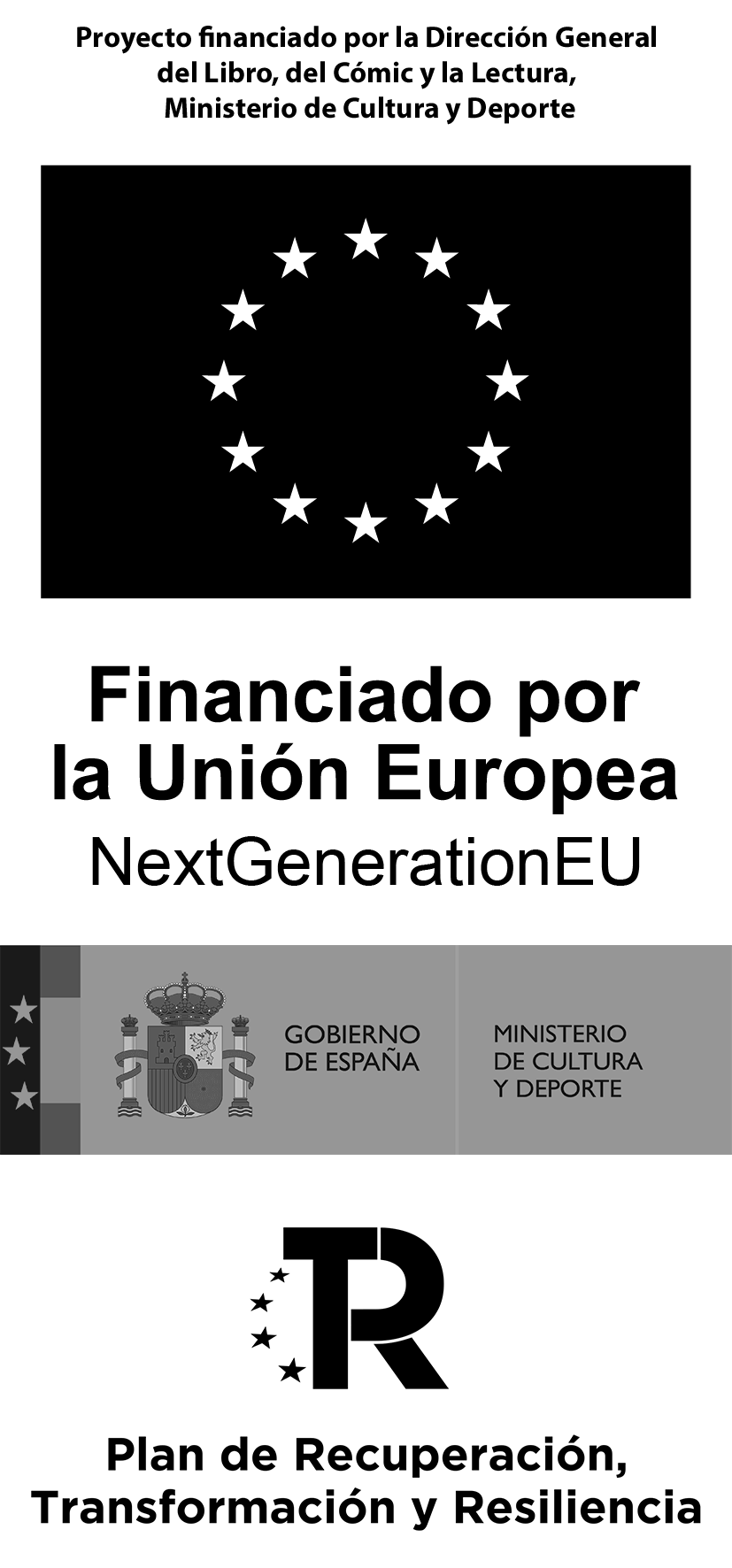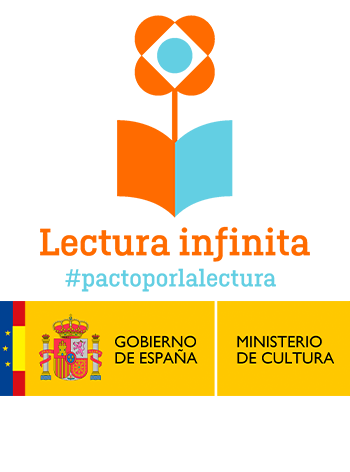
(Versión en castellano aquí)
When Kaspar Korjus was born (Tartu,1987), he was assigned the number 38712012796 before he was named, as happens with everyone else in Estonia. It is his digital identification. In this small Baltic country, that number is used for nearly every administrative transaction: medical receipts, taxes, business management and, of course, electronic voting, among others. Not only is Estonia the most technologically advanced country in the world, but it also has the cleanest air on the planet.
Kaspar is the Managing Director of the e-residency programme, an innovative project that has created a framework of digital citizenship where anyone in the world with internet access has within their reach an endless amount of digital services that allow, among other things, remote business creation and administration. We meet Kaspar at his office in Tallin so that he can explain to us how a country that used to belong to the now extinct Soviet Union has managed in such a short time to lead digital transformation at a global level. We are in the last days of August, it’s 15 °C and raining.
Interview conducted by 47804290049 and 37011020138.
What’s e-residency and what’s the difference between e-residence and citizenship?
E-residency is a totally new concept associated with the idea of citizenship, which cannot be compared to anything else in the world –because there is nothing similar. E-residency doesn’t allow you to travel or vote with that card, but it gives digital rights. It gives you digital access to services, such as a digital signature, bank account, business creation and administration, etc. A digital e-resident can do anything that local people in Estonia can do. Digital citizenship is like a 21st century country, it’s the first fully digital country that is meant for everybody. Because everybody, internationally, can belong to this. For the first time there is a country which accepts you and gives you a digital name, and every time you try to log in to some service there is an institutional entity that says this is you. It’s the first time a country can verify the identity of any person on the planet. That’s why you can start using new services you could not use before.
Who had the idea of opening e-residency to any citizen? Why did Estonia create e-residency?
We created it first because we already had the infrastructure. For fifteen years Estonians have been voting online, declaring taxes online, getting prescriptions… And now we are just allowing foreigners to do the same. When we started we didn’t have an exact understanding of who would want to be an e-resident and why, and what the benefit would be for Estonia. The promoter was Estonian Taavi Kotka, who together with Ruth Annus and Simm Sikkut presented the idea “10 million e-residents by 2025” to a tender to the Estonian Development Foundation in 2014. Then I became part of the project as I got a scholarship, and we’ve been working together for two years. Throughout the first days and months we started to understand the story behind e-residency; who would like to become an e-resident and what they would need to do. E-residents have told us from day one what laws we need to change to make the environment easier, what new services and processes they want… We have passed many different laws to make e-residents happy.
Why would someone want to become an e-resident?
Today e-residents are mostly entrepreneurs, businessmen who want to do business. Usually they first establish a company, they open a bank account, establish some payment providers to accept currencies and then they run their companies using this digital identity. They do everything online: declare taxes, sign contracts… It gives them full location independence. And the benefits for Estonia are also substantial. Estonian service providers can now sell you services: bank accounts, legal advice, tax advice… and not to only to Estonians, one million people, but to everybody internationally. These were the first steps. Now we are also working with the UN, the WTO and different organisations to make financial inclusion possible worldwide, so that any person on the planet can have access to digital and financial services with this card. The purpose of this programme is not to make Estonia rich anymore, it’s rather to make financial inclusion succeed worldwide, so that every person on the planet can have the possibility. It’s the way Estonia can give something to the world and to society, because for us it doesn’t have any extra cost and it can enable anyone in the world to have equal opportunities to do business and be recognised on the internet.
What’s the process to obtain a digital ID?
Everybody can go online to e-estonia.com, upload their passport, choose a pick-up location and, after paying €100 by credit card, they can go and pick up their card. Today there are 39 embassies where you can pick it up, also in Spain. Once there, you identify yourself and they check your fingerprints and you receive your card. Today there are 39 embassies, but we are going to extend it to every city in the planet, basically, using different partners. But the physical meeting is required, so we can see physically who you are and check your official documents.
How many residents are there currently?
Today there are 14,000 e-residents, and of course the figure is increasing rapidly. It is basically a word-of-mouth kind of marketing, we haven’t done any campaigns.
There are residents from 133 nationalities, many of them from outside the European Union. What do these residents look for?
I think that most of them are people from outside the EU. Because of Brexit a website has been created for British people who are constantly asking us what is going to happen with their businesses if they leave the EU. We made that landing page for them because we were getting those questions. In the website you can see that even if Brexit happens it is very easy to have the Estonian entity run a company inside the EU.
And maybe they can move their companies to Estonia?
Many people don’t want to move physically, they want to stay where they are. If you want to stay in your country and work with clients from the EU, you just have your business entity here and do all the transactions and payments digitally. Nowadays, to work in the global market it’s necessary to have a company in Asia, another in the US and another in the EU, and e-residency is perfect to have the EU one.
What are your expectations? How many residents can you admit?
Our expectations for 2025 are 10 million residents, that’s how the project was conceived. It’s very feasible because it is spreading itself and together with the UN and different organisations we are going to help emerging countries to adopt e-residency, because it helps their citizens. Now in the new emerging markets people can do business on the internet, they can sell their services, they can accept foreign currencies, pay their taxes in their home country, so they’ll get new revenues for their countries. Everybody wins, and that is why it spreads. Eventually, every person on the planet who wants to do something on the internet can have a digital identity and do it. And today Estonia is the first and only country which offers it.
There are many people who like the e-residency programme but are not interested in setting up a business.
Today 40% of e-residents don’t want to do business. And for that 40% we are now building an app store where you can start using different services, like e-prescriptions. What matters is that you are verified on the internet so you can use services. NASDAQ is at the moment working together with us to offer financial market access, so you can buy NASDAQ listed companies, go to the shareholders meetings and vote. It’s nothing related to Estonia or business, it’s more about finance. There are also many startups, like Funderbeam, who are going to offer you the possibility to start selling the shares of your startup on the internet. It’s like a NASDAQ but for startups. There are communities for e-residents, for example, where you can chat, so it’s nothing related to business. There are more and more services and we are kindly asking different startups to integrate e-residents. If you are a Spanish startup, for example, and want to sell your products in an international market, you just probably want to sell them in the EU, because in many cases you need some sort of verification, so you have to ask for passport scans, sometimes a background check… With e-residency, within one minute you can just put on your website an identity verifier and allow e-residents to identify themselves. After logging in we check they actually are who they say they are, hence the Spanish startup can now sell its services in Japan, in India… anywhere in the world if they are e-residents. And that’s why today the 60% is business oriented, because that’s the main drive. First we just built this programme, with which within a minute you can establish everything, and after a few months we started integrating more and more services, so eventually we will have an app store with tens of thousands of services.
And you pay your taxes in your country.
Yes, you are being taxed mostly in your country. If you are hiring people here or if your physical activity is here then you also start paying in Estonia. E-residency is not tax residency, it is up to you to find out where you have to pay your taxes.

Is it easy to create a company in Estonia? Can you do the whole process online?
Yes, it’s very easy. Besides for software developers we have made available something called Incorporation API, a small app that allows any programmer to add to their software the possibility to create a company in Estonia for a third party. So it can even be a Spanish company making the registration of an Estonian company. This software, therefore, can be in Chinese, in Spanish or in any other language. There can eventually be thousands of different ways to establish an Estonian company and some of them can be so easy that if you have all the data about the person you can establish your own company with just one click. That means that it is up to the private sector to do that, we are outside to see who is the fastest to establish companies. Now it is up to the private sector.
We tried it and it wasn’t that easy.
Because you were using a government-run portal, but now any private company can do it for you. That’s why it can now be done with one click. In our business portal it usually takes twenty minutes to do it, but many people are using these partners which do everything for you and you just need to sign. A government can never be as user-friendly as the private sector or a startup. Our processes don’t work like that and that’s why the concept of “government as a service” exists. This means that we do not develop things ourselves, like for instance a piece of software to ask for your tax filings, to ask who the shareholders of the company are… everything is through API so the private sector can build its own services. If you want to register a company there can be 100 different sites where you can do it. If you want to use authentication there are different ways to do it. In that sense we, as a government, start by identifying people, we keep the infrastructure and legal structure and we make it very easy to become an e-resident, but all the services, even government services, are built by the private sector.
How do companies pay taxes in Estonia?
There is 0% income tax if you don’t take the money out of the company. If you want to pay your salary or take the money out you pay 20%. We like to say that we don’t punish your company if you are making profits, we don’t want to take your money out, we want you to become bigger and bigger and, eventually, if you have the possibility to take money out, you pay 20%. Otherwise you don’t pay anything.
How do you tackle intra-community VAT fraud?
Let’s take e-residents out of this. With or without them, every government is tackling it in the same way: they work together if there are some weird transactions. In any case, e-residency just makes it digital and transparent. Without e-residency you can pay in cash, whereas e-residency leaves a digital footprint of every action you do. And you leave your fingerprints, so we know who you are.
Can anyone open a private bank account in Estonia?
Banks usually provide you with a corporate account because you have a company and a physical address for the company. If you just want a private account but you don’t live in Estonia, they will usually not give you an account, because private accounts are only if you want to do something in Estonia. In any case, the decision to open a personal bank account is decided by a comittee of the banks.
Is Estonia a tax haven?
It’s exactly the opposite of a tax haven. One of the characteristics of tax havens is lack of transparency, they keep secret how much money their clients have there, who are the managers or the shareholders. This is the opposite. It’s public information who is the company owner, when it was established, all transactions are digital, every time you log into the system you are verified, and we are working with other governments; if they ask for information about you and how much taxes you should pay we let them know. So this is the opposite of a tax haven, everything is transparent and leaves a digital footprint.
Is Estonia the most technologically advanced country in the world?
Yes. Estonia is the only country where the infrastructure of public and private sector are actually working together. It’s called the X-Road. It’s the only country where public and private sector can use your digital name and offer you services by identifying you with your card. When I declare taxes it takes me 20 seconds, because using my card I ask my salary, the value of my house, whether there are children… that’s information from my digital name which is available for both the private and public sector. It’s the only country in the world that does it this way, and to share it I just need to sign. Nowhere else in the world does this thing work. And that’s why Estonia can offer so many services. If e-residents want new services they just have to ask for them.
In 2007 the Estonian net was hacked by Russians. Is it possible to hack a country which is completely digital?
It was a cyberattack, so yes, you can hack it. Everything digital can be hacked, that’s for sure. The question is that it wasn’t really hacked, it was just that the servers were attacked. No one tried to change the data because they can’t, the data is encrypted. But yes, in 2007 it was attacked and some servers were down, and after that cybersecurity became one of the most important strategies for Estonia. After that the EU made cyber defence a main issue and now we are showing the EU our experience and sharing the know-how to avoid cyberattacks. The core of this is to have distributed data centers and everything must be encrypted, which is something basic for us, but most governments don’t have it encrypted. And an ongoing monitor, of course. There is another project developed by the Estonian government, called Data embassies. You have embassies in different countries where people are working. For example, the Estonian embassy in Madrid is Estonian land, but it’s up to Spain to make sure it’s safe. But since it is Estonian land, Estonian laws apply. Now we are doing the same embassies but instead of people there are data centres. That means that Spain needs to do whatever it takes to protect that data centre. This means that if something bad happened you can just shift all our services and data to your data centre, so not only would the data be protected, because since the country is fully digital you can still register births, deaths, pay taxes… you can still do all the same things digitally, even outside of Estonia. The country would still be up and running.
In Spain there are many problems with people who live abroad and want to vote. In Estonia the electronic voting system was used by more than 30% in the 2015 election. Give us some information about iVoting.
It’s already been working for ten years for people who live abroad. There are countries that offer electronic voting, which means that you vote using a machine, but you still need to go there. In Estonia you can use your mobile phone or any device with your digital identity to vote. Last time there were people from over 100 countries who voted in the local elections. The last three times I have voted through iVoting, because I travel a lot, but I can still be part of our democracy. Wherever I am, I just use my mobile phone to vote. And it’s very safe. Some people ask what if someone forces you to vote for someone. With digital voting you can vote as many times as you want, only your last vote is considered. If someone forces me to vote for someone, I just go to the toilet and vote for the one I want. Another interesting aspect is that older people vote digitally more than younger people, because of the weather. If it is raining or snowing, older people don’t want to go out and vote, they just use their computers.
Another problem in our country is that justice is very slow. Give us some information about e-court. What is the regular timing here?
As you see, in Estonia everything is e-, all of our systems are. Also justice, of course. It’s very useful because there are different parties with a common interest: secret police, police, law enforcement… If you have the digital identity you can access all the data when they are available and start matching them, which makes the government more efficient and there are fewer mistakes.
In what other things is Estonia a leading country?
Besides services, Estonia leads the world in fresh air. It’s the country with the freshest air. It has been voted as number one for many years. It’s a good place to live… if we ignore the weather. Also, Estonia has the most startups per capita and this startup culture has led to fail and fail and try again. And this is very important.
What’s the next technological advance there will be in Estonia?
There are so many things… One thing that we are pushing now in the EU is the free movement of data. There is free movement of people and free movement of money, we have proposed free movement of data. This means that each e-resident and citizen of the EU is the owner of their own data. Today Google and Facebook are selling ads with your data, they are earning money with your data. What we are trying to do, and what Estonia is leading is that Google cannot sell your data, they need to pay you to sell your data. And eventually each person can sell their own data and earn money. Every person will control their own data and why: doctors, police… anyone who has access and has the right to do that leaves a footprint, and if they access and they did not have the right to do that, it’s a criminal case. So I think the next big thing is the ownership of the data and how e-residents can start giving access to their data to the different service providers.
Paul Krugman strongly criticized the Estonian government in 2012 because of the drastic spending cuts between 2009 and 2010. It seems he was wrong and the austerity measures have had good results…
Estonia has always been the lowest tax-burdened country in the EU. I think our national debt now is around 5%, and for us this is important because it surely increases the level of trust, and e-residents need to trust the country where their money is. If the country doesn’t have any debt basically you can trust them. As for the costs, we have saved a lot, for instance with the treatment of data on the part of the government. The government cannot ask for your data again if they already have it. The government already knows whether you have children or not, your date of birth… so if you are going to use e-prescriptions they don’t need to ask all that from you. That’s why e-prescriptions or any new service here doesn’t need to develop new servers to host your address, name, birthday… they already exist. It saves a lot of money because we use the existing infrastructure; you don’t need to have data from multiple locations, everything is digital and very efficient.
So the criticism was not about cuts in education or healthcare.
No, it’s not about education or health. He is an economist and has different beliefs. He believes that if the economy is not doing great you need to take loans and put that money into the economy to light it up again. Estonia used a different approach: if you don’t have money you don’t spend money.
So there were cuts in education and healthcare.
I can’t say in what systems there were cuts. It was general in the economy budget. If you have less, you spend less, but I can’t remember where exactly. But… everywhere! Public sector salaries decreased, the policy we are using is that if you have less money you spend less money. I think it makes sense, but most countries, if they have less money, they ask for more money. Of course, certain needs like roads, education or healthcare need to be covered, but there are other places where we can cut money. It is more difficult in two figures, but as you don’t pay high interest and you are not in debt, it pays off in 15 or 20 years. Politically it’s difficult, because you wouldn’t be elected next time if you lowered everybody’s salary.

How is it possible that a sparsely populated country with no natural resources and no tourism has become one of the better economies in the European Union?
There are soft topics and hard topics. Soft topics is that Estonia always tried to find something bigger than itself, because if you are a country with just 1.3 million people you always try to be more creative or find new solutions. That’s why Estonians keep pushing the boundaries of IT. Founding Skype, for example, or trying to find a new state with e-residency. Finding something bigger than themselves. And this urge is inside. But another thing is what we are going to see in 10 or 20 years, when the world will be technology-driven. Everything will be done by smart technology and artificial intelligence technology. And you need well-structured infrastructures for that. You need laws that will support that. If you have them you can start growing, if you don’t have the basics, for example the fact that a digital signature is as good as physical authentication or a personal meeting, you can’t grow. If the world is technology-run this is the only way. In 20 or 30 years time lots of countries will be well behind and some small countries can become very wealthy because of technology.
In Estonia the Flat Tax has been used since 1994. What’s your experience with this model? Should it be implemented and made uniform in all the countries of the European Union?
I shouldn’t be the one suggesting what other countries should do, because every country is different. In Estonia it does work well, because maybe the most important thing is that it is so easy. It is 20% flat, no exceptions. It’s so easy to understand that it makes it just convenient and trustworthy. For us it is important that companies who want to invest in themselves come without paying taxes, because eventually we will receive the money anyway. We will get the 20%, but we will get more money if they grow.
Estonia is going to be the first country to legalise companies like Taxify or Uber. How are you going to regularise these sort of companies without putting an end to the traditional companies?
Just as background information, traditional regulations just don’t fit with new business models. It’s a new thing in the world, the shared economy, and it just doesn’t fit. And everybody is against that. In Estonia what we have always tried to do is, if something new comes, and it’s better and everybody is using it, we just try to embrace it, try to change laws to make sense. The use of technology helps us to embrace that, because with Uber and Taxify all the taxation is automatically paid by every Uber or Taxify driver. And drivers like that because they don’t need to do anything: they drive, the customer pays, and the money is in their bank account after automatically paying the taxes. People don’t avoid paying taxes. As a citizen of Estonia I can use Uber because it’s legal, which is great; as an Uber driver I don’t need to declare taxes because everything is paid for me; and as a government I’m happy there is more tax money, more revenue. Again, it’s another win-win solution, and we hope that other EU countries will do the same. And, answering your question, of course in Estonia we had the same problems, because being a taxi driver was more difficult than being an Uber driver because of the regulations, so it was not fair, and now we are changing the taxi laws to make it easier to become a taxi driver. And at the same time they have to start declaring taxes the same way, automatically. We are changing the taxi law, but we didn’t start by stopping Uber and Taxify because they were illegal, we accepted they were illegal for half a year until the law was changed.
So basically your approach to traditional companies is…
To bring them around a table and see how it is unfair to them.
You’ve created a website to explain how e-residency can be useful after Brexit. How is Brexit going to affect the European Union? In economic terms, is Brexit good or bad for Estonia?
Estonia definitely supports a bigger EU economy, the more players on the digital market the better, and UK has been, next to Estonia, one of the most progressive countries supporting reforms in the EU and supporting technology and different digital strategies. In that sense, the EU will definitely be weaker. When it comes to e-residency, it constitutes a great opportunity to stay being a part of the EU through an e-residency company. And, of course, as the Estonian government we are willing to help those people who want to be part of the EU, because if we look at the statistics, most of the startup companies in London want to stay in the EU. And we are giving a hand to e-residents to help with that.
So you are benefitting from Brexit.
The more players on our programme, the better. It doesn’t matter if it’s the EU, Singapore, the US or whatever country: we support more governments becoming members of this highly digital society, so that others would start recognizing its advantages, because if there are more members there are more links, it’s the network effect. The more members, the more reliable a network is. And now different players are on different policy areas. Some are part of the EU, others are part of Asia, part of the US… We need all of those parts. Eventually all of those players can interact together. In that sense, a digital one, in 30 or 40 years time it doesn’t matter whether Britain is part of the EU or not, because digitally there are no borders, and we can still interact with anyone the same way.
The presidents of Estonia and Finland had a meeting to discuss the future of cross-border e-services. Is the digital union of the European Union countries the final step to achieve the real union of the countries?
We all like our own cultures, we don’t want the EU to become just one country, none of us would like that. Perhaps that should be communicated more clearly. But we do enjoy the free movement of people and capital. We like the free movement of people and capital. The important thing is that whatever you do is legal across the EU. When it comes to digital staff, I don’t know many people who would argue that the borders are useful. The European project Digital Single Market is one of the biggest goals the EU should continue, and there should be agreements in that respect. But it’s not up to me to say whether it’s the final achievement of the union of the countries. But definitely, in 40-50 years time digitalisation will have an even bigger impact, and if you manage to sort that out you’ll have a bright future.











Pingback: Intervista a Kaspar Korjus | lituopadania